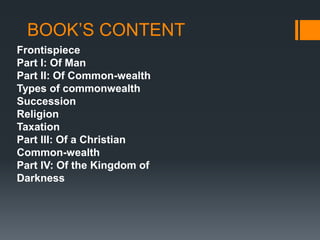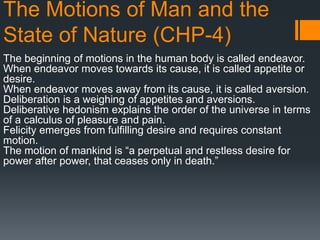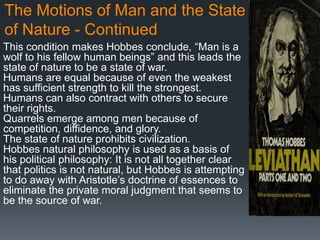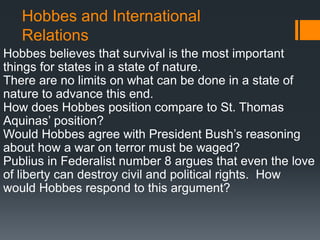Hobbes aimed to understand how social order is possible given human nature. He viewed humans as being in a state of nature characterized by a war of "all against all" due to humans' natural competitive desires and insecurities. Without a sovereign power to enforce rules, life would be "solitary, poor, nasty, brutish, and short." To escape this state of nature and achieve peace, Hobbes argued people consent to a social contract establishing an absolute sovereign with a monopoly on power. In his influential work Leviathan, Hobbes laid out this social contract theory and argued for strong central government to maintain order and avoid civil war.
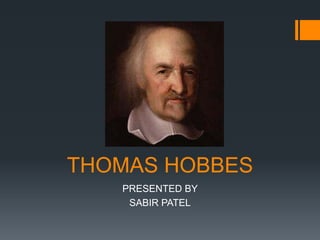
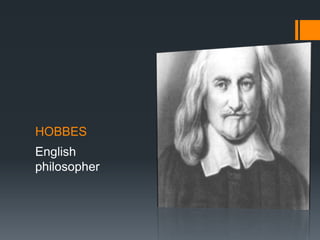
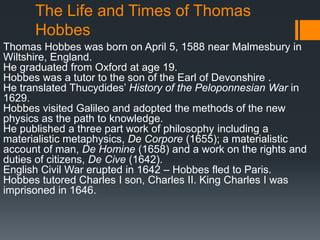
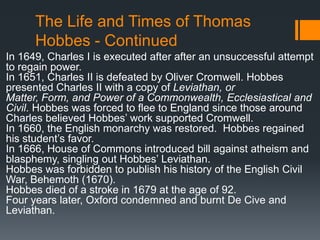
![At university, Hobbes appears to have followed his own curriculum; he was "little
attracted by the scholastic learning". He did not complete his B.A. degree until 1608, but
he was recommended by Sir James Hussey, his master at Magdalen, as tutor to William,
the son of William Cavendish, Baron of Hardwick (and later Earl of Devonshire), and
began a life-long connection with that family.[10]
Hobbes became a companion to the younger William and they both took part in a grand
tour in 1610. Hobbes was exposed to European scientific and critical methods during the
tour in contrast to the scholastic philosophy which he had learned in Oxford. His
scholarly efforts at the time were aimed at a careful study of classic Greek and Latin
authors, the outcome of which was, in 1628, his great translation of Thucydides' History
of the Peloponnesian War, the first translation of that work into English from a Greek
manuscript. It has been argued that three of the discourses in the 1620 publication
known as Horea Subsecivae: Observations and Discourses, also represent the work of
Hobbes from this period.[11]](https://image.slidesharecdn.com/thomashobbes-121001213338-phpapp01/85/Thomas-hobbes-5-320.jpg)
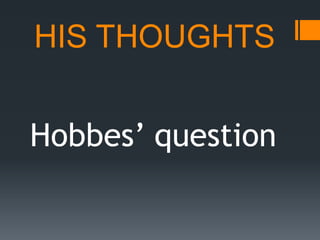
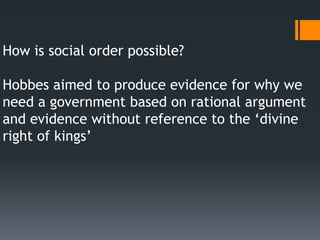
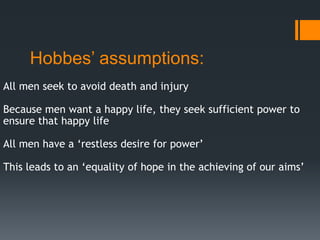
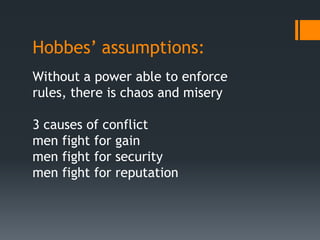
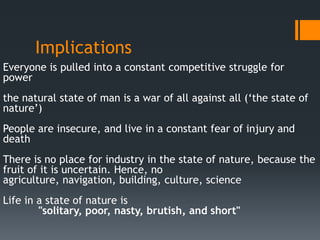
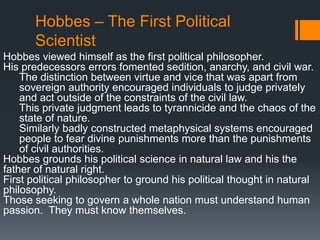
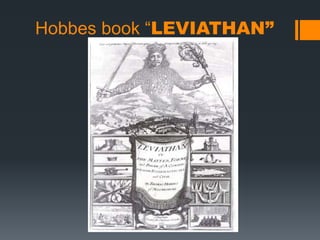
![Leviathan or The Matter, Forme and Power of a Common
Wealth Ecclesiasticall and Civil — commonly called simply
Leviathan — is a book written by Thomas Hobbes (1588–1679)
and published in 1651. Its name derives from the biblical
Leviathan. The work concerns the structure of society and
legitimate government, and is regarded as one of the earliest and
most influential examples of social contract theory.[1] The publisher
was Andrew Crooke, partner in Andrew Crooke and William
Cooke. Leviathan ranks high as a classical western work on
statecraft comparable to Machiavelli's The Prince and is one of a
number of related works incident upon the crisis of the English
state framework of the time.
In Leviathan, which was written during the English Civil War
(1642–1651), Hobbes argues for a social contract and rule by an
absolute sovereign. He wrote that chaos or civil war – situations
identified with a state of nature and the famous motto Bellum
omnium contra omnes ("the war of all against all") – could only be
averted by strong central government.](https://image.slidesharecdn.com/thomashobbes-121001213338-phpapp01/85/Thomas-hobbes-13-320.jpg)
